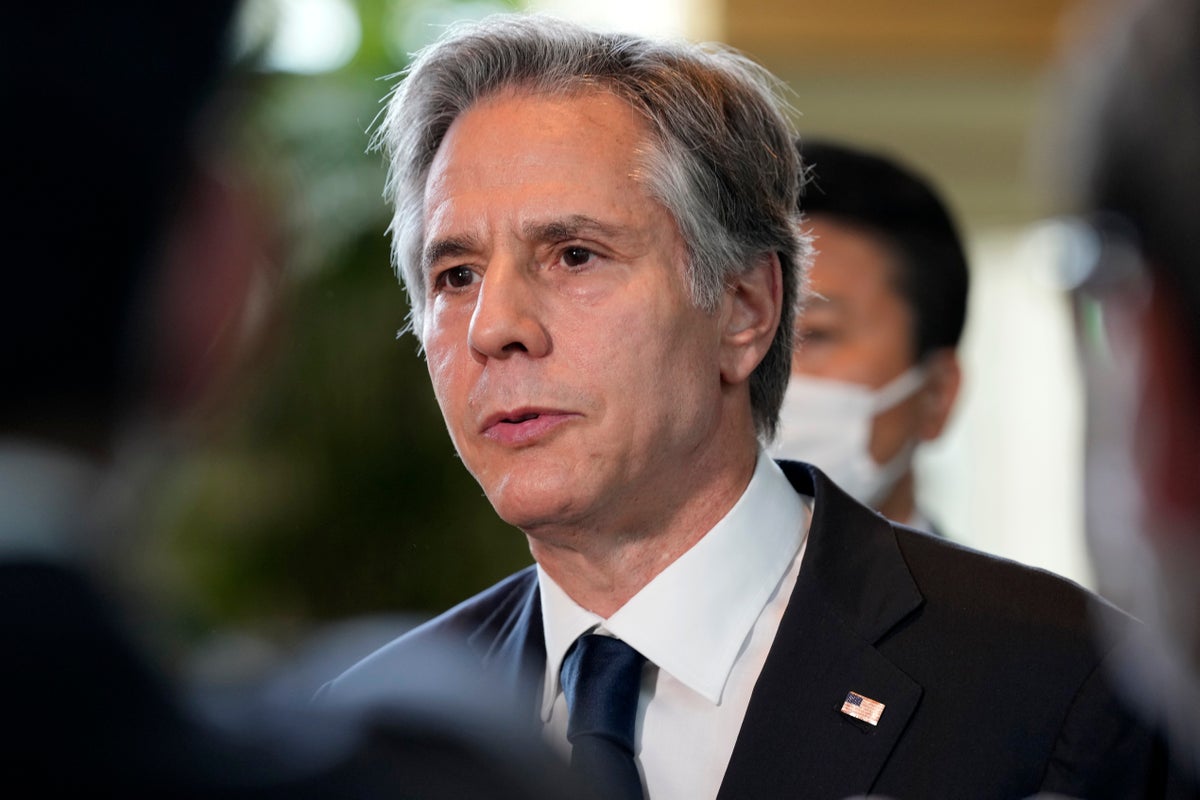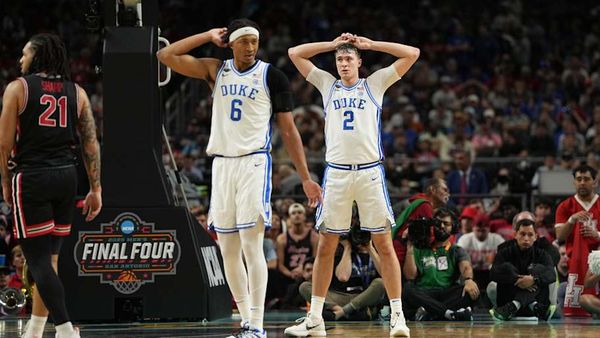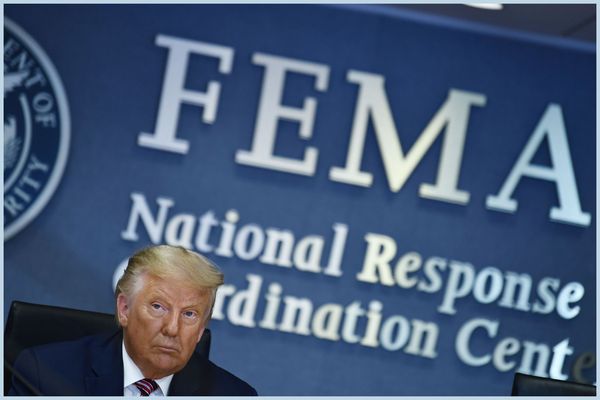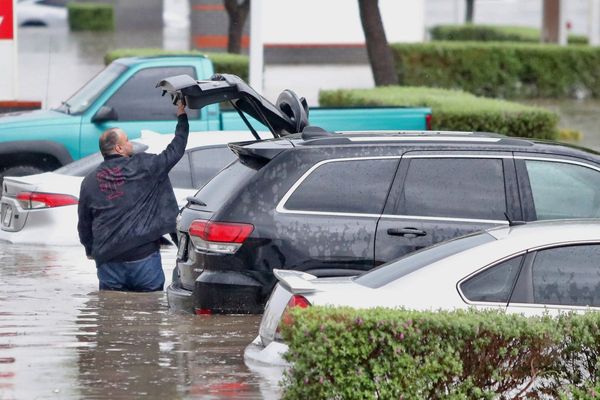
Boosted by a new mandate in weekend elections, Japanese Prime Minister Fumio Kishida met Monday with the U.S.'s top diplomat, who delivered condolences over the death of influential former leader Shinzo Abe and reassurances of a strong bilateral alliance.
Kishida's governing Liberal Democratic Party and its junior coalition partner Komeito secured a solid majority in elections for parliament's upper, less powerful, chamber in a vote Sunday that was imbued with meaning after Abe was assassinated while campaigning Friday.
U.S. Secretary of State Antony Blinken, who was in Indonesia for a Group of 20 foreign ministers meeting when Abe was shot, gave Kishida a letter from President Joe Biden to Abe's family.
“We simply want them to know that we deeply feel the loss on the personal level as well,” Blinken told Kishida. “Mostly I’m here because the United States and Japan are more than allies — we are friends.”
Blinken said Abe "did more than anyone to elevate the relationship between the United States and Japan to new heights.”
Blinken was the the most senior U.S official to visit Japan in the aftermath of Abe’s death. The wake and funeral for Japan’s longest-serving political leader are expected in coming days.
Abe's death imbued new meaning in Sunday’s vote, with all of Japan’s political leaders emphasizing the importance of free speech and defending democracy against acts of violence. It also may have generated sympathy votes, with turnout around 52%, up about 3 points from the previous 48.8% in 2019.
Kishida on Sunday had called the election extremely meaningful: “Our endeavor to protect democracy continues.”
The vote gave the LDP-led coalition 146 seats in the 248-seat chamber — far beyond the majority — and means Kishida stands to rule without interruption until a scheduled election in 2025.
That would allow him to work on long-term policies such as national security, his signature but still vague “new capitalism” economic policy, and his party’s long-cherished goal to amend the U.S.-drafted postwar pacifist constitution.
Advancement on changing the charter is now a realistic possibility. With the help of two opposition parties supportive of a charter change, the governing bloc now has two-thirds majority in the chamber needed to propose an amendment. The governing bloc already has secured support in the lower house.
Kishida welcomed the victory but also acknowledged that unifying the party will be a hard task without Abe, who even after resigning as prime minister in 2020 had led a powerful party faction. In media interviews late Sunday, Kishida repeated: “Party unity is more important than anything else.”
He said responses to COVID-19, Russia’s invasion of Ukraine and rising prices will be his priorities. He said he will also steadily push for reinforcing Japan’s national security as well the constitutional amendment.
Kishida and senior party lawmakers observed a moment of silence for Abe at the party election headquarters before placing on the whiteboard victory ribbons next to the names of candidates who secured their seats.
On the final day of campaigning Saturday, party leaders avoided fist-bumps and other friendly gestures in close contact with the public — a sign of tightened security after Abe was shot on a city street by a man carrying a homemade weapon.
On Sunday, the suspect accused of his murder was transferred to a local prosecutors’ office for further investigation, and a top regional police official acknowledged possible security lapses allowed the gunman to get close to Abe.
The suspect, Tetsuya Yamagami, told investigators he acted because of Abe’s rumored connection to an organization that he resented, police said. Some Japanese media identified the group as the Unification Church.
Abe stepped down two years ago, citing health reasons. He said he regretted leave many of his goals unfinished, including revising Japan’s war-renouncing constitution that some ultra-conservatives consider a humiliation.
He was the grandson of another prime minister and became Japan’s youngest prime minister in 2006, at age 52. The overly nationalistic stint in office abruptly ended a year later, also because of his health, prompting six years of annual leadership change.
He returned to the premiership in 2012, vowing to revitalize the nation and get its economy out of its deflationary doldrums with his “Abenomics” formula, which combines fiscal stimulus, monetary easing and structural reforms. He won six national elections and built a rock-solid grip on power.







